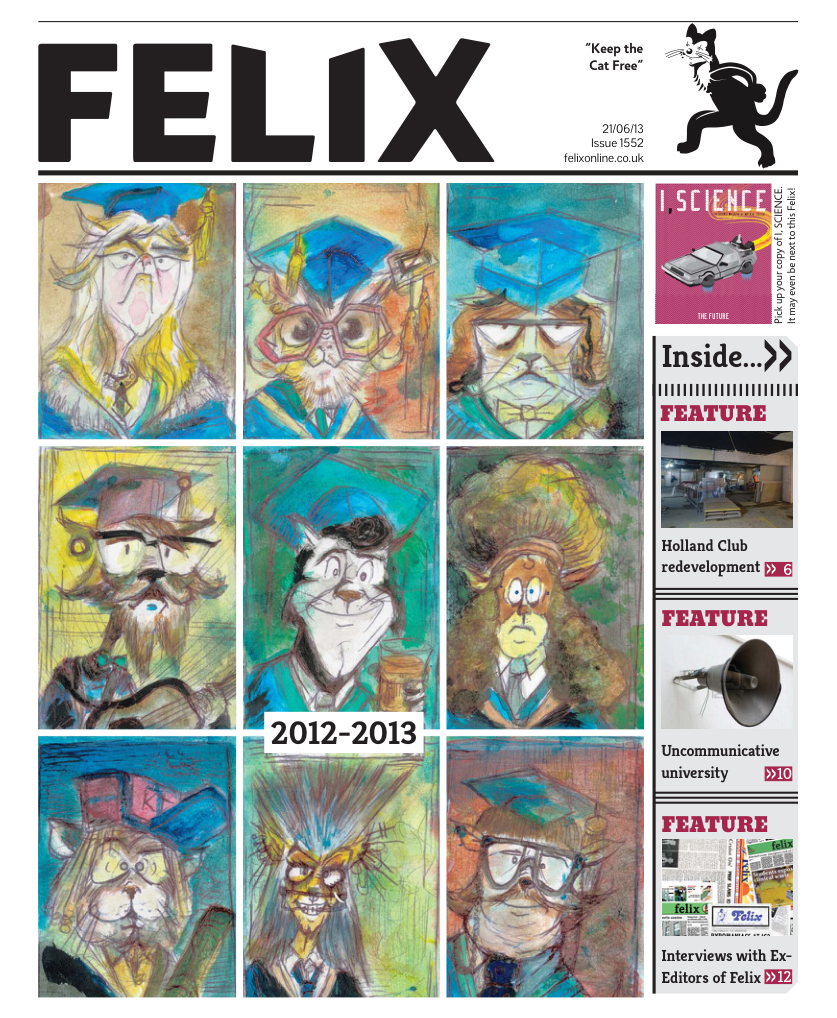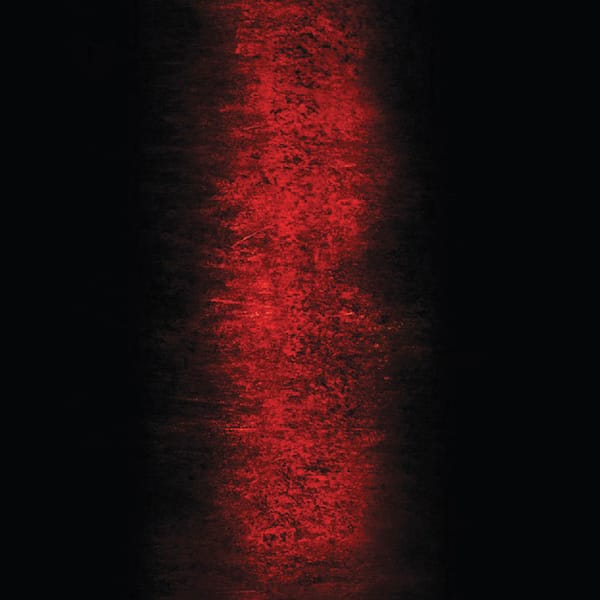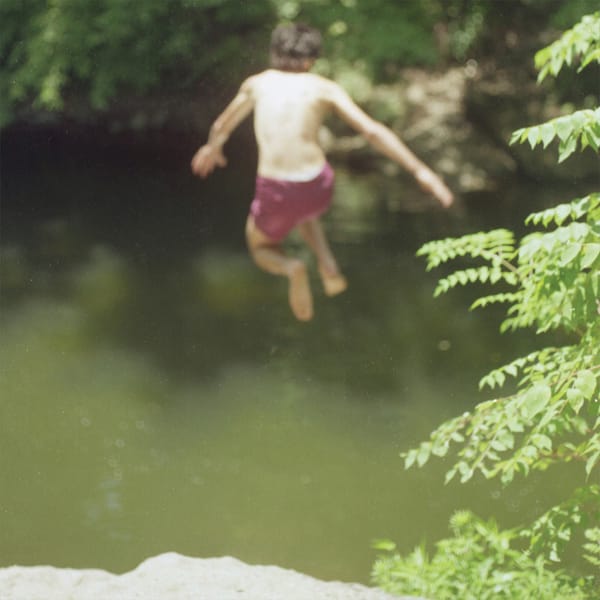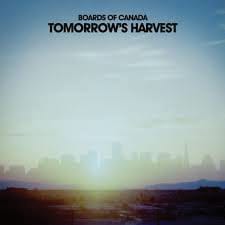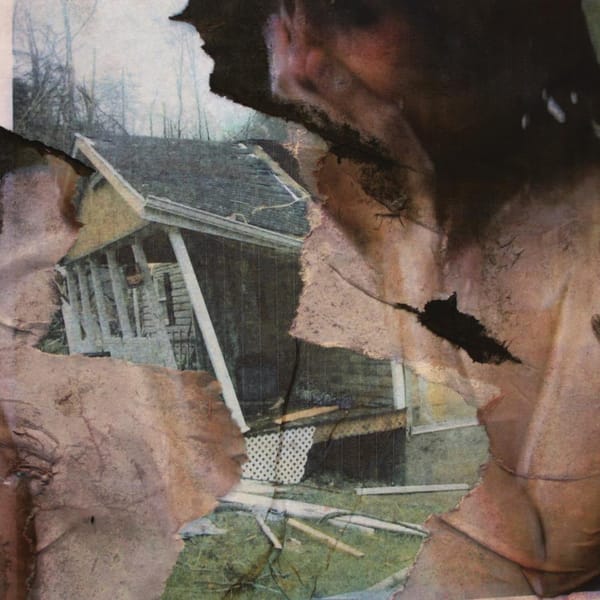Positive Prediction for Free Improv
Matt Earnshaw reviews Steve Noble and Ikue Mori’s new album
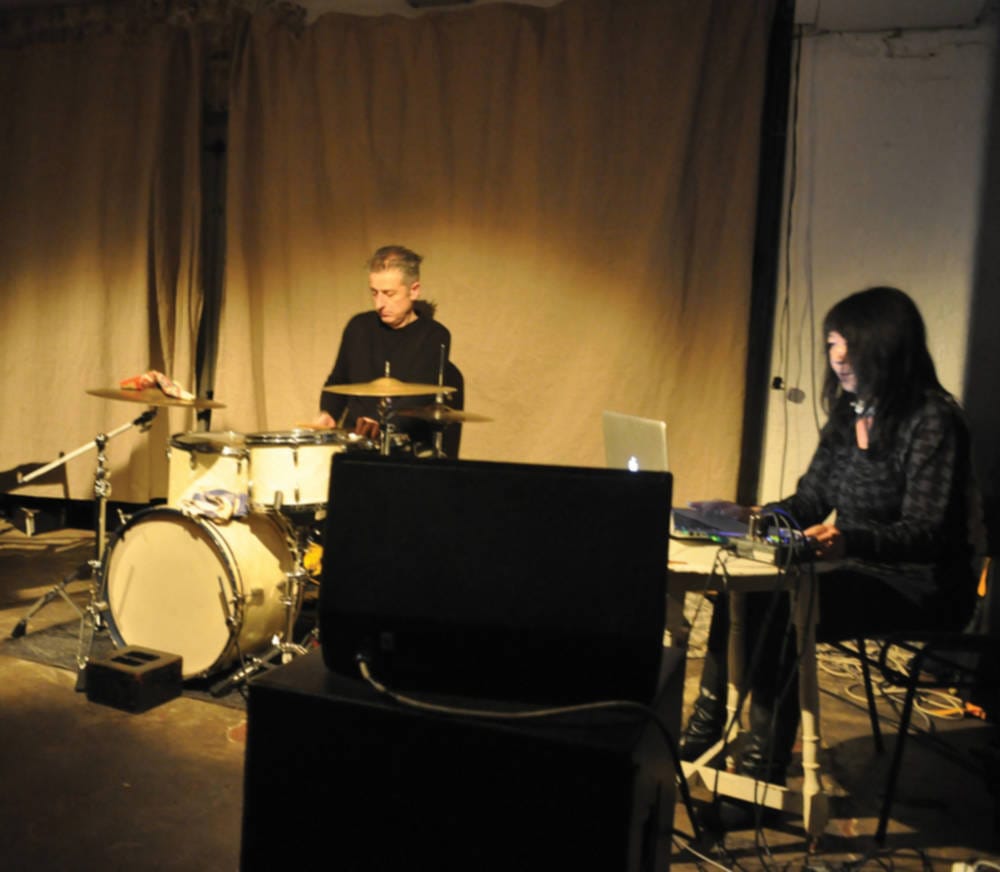
"I think free improvisation’s great era is over”, lamented the late Derek Bailey in a 2004 interview with The Wire’s David Keenan. A key figure in the development of the artform, the guitarist was already sounding its death knell, barely more than thirty years since it had become a recognised movement. Indeed, although the venerable imprints of the likes of Incus, Emanem, and Psi continue to publish new editions, it’s now largely archive material, apparently corroborating Bailey’s pessimistic outlook on the state of the art.
Having largely grown out of jazz music, free improvisation has always struggled to completely break free of tradition. Bailey wrote that “Diversity is [free improvisation’s] most consistent characteristic … [its] characteristics are established only by the sonic musical identity of the person(s) playing it”. In theory then, this allows for limitless new possibilities and gives no indication of what the listener should expect from when listening to free improvisation. In practice this is not the case. The failure (consciously or not) of many improvisers to completely break ties with jazz has lead to a certain tacit codification of how free improvisation should sound, directly contradicting the idiom-free nature of the art that Bailey and his contemporaries were working towards. Even the instruments used are a contributing factor, “You cannot play a saxophone and not make it sound like jazz [except maybe Steve Lacy and Anthony Braxton]”, quipped Bailey.
In 2013 it’s a little easier to be more optimistic about the state of the art, particularly with the success of venues like Cafe OTO in Dalston, which since its inception in 2008 has been a cornerstone of London’s apparently still burgeoning free improvisation scene. More evidence that free improvisation isn’t dead yet came last year when the London-based label Fataka launched, dedicated to issuing brand new recordings of improvised music.
Amongst Fataka’s most recent editions is Prediction and Warning, a document of a 2011 meeting between veteran improvisers Ikue Mori and Steve Noble, both at various times members of Bailey’s “Company”, an influential collective of improvisers in the 70s and 80s, but who only played as a duo for the first time in 2010 at Cafe OTO.
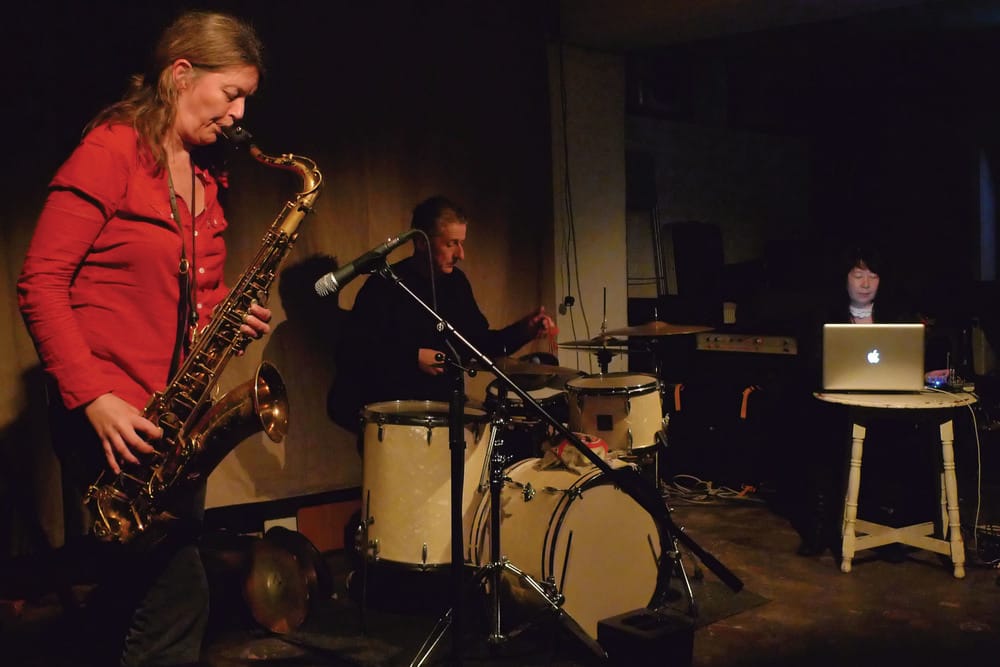
Mori’s musical life started in the early 80s as a drummer for the influential No Wave band, DNA. After the group split she kept her ties with the New York downtown scene and under the influence of John Zorn started developing her individual voice as a computer music improviser, initially with drum machines and later purely using software such as Pure Data. Since then her collaborators have included Christian Marclay, Elliott Sharp, Zeena Parkins, Catherine Jauniaux and Bill Laswell. Her sound as a laptop improviser is typically percussive, granular, glitchy, and fractured but in its more placid moments draws influence from drone and ambient music.
Noble has been a mainstay drummer on the London improvisation scene for the last thirty years and has released several dozen recordings, largely with fellow London based improvisers such as Lol Coxhill, John Edwards, Alex Ward, and of course Derek Bailey. His highly idiosyncratic approach to drums involves heavy use of preparations such as small chinas or other objects placed on the drum heads to produce a massive variety of unexpected sounds from a relatively small kit. He resists keeping time but is not unwilling to make occasional brief hints at a groove.
Together their voices synthesise into one intense crystalline form, apparently with a life of their own, never predictable, and constantly evolving. ‘Seismic Waves’ lives up to its name, opening the album with a euphoric tumult of percussion which continues to boil and seeth over its six minute duration only barely settling down towards its end. From here, the flow of ideas is absolutely unrelenting and largely resistant to description in words or comparison with existing improvisers. This is precisely the hallmark of a piece of excellent and refreshing free improvisation.
Some of the busier pieces could be criticised for having little to differentiate them, although with repeated listenings their abstract nature does start to become more decipherable, and one can recognise sheer amount of variety present in these eight pieces. Things cool down briefly on the eleven minute ‘Land of Famine’ which opens with Noble taking a bow to his cymbals and the pair allowing their sounds to stretch out a bit more before the duo’s energy refuses any longer to remain constrained and the piece reaches a thundering crescendo in the final minute.
So while perhaps there has been a tendency over the last thirty years towards a slight codification of what is to be expected by free improvisation, here’s a highly original meeting proving that there are still many surprises in store. Let’s hope that the likes of Fataka and Cafe OTO will continue help these new voices find their way to the ears of the public. Maybe free improvisation’s great era isn’t over – perhaps it’s still just getting warmed up.
The duo play Dalston’s Cafe OTO on Monday 24th July, alongside a solo performance by pianist Pat Thomas who released an excellent new solo album entitled “Al-Khwarizmi Variations” earlier this year, also on Fataka.

